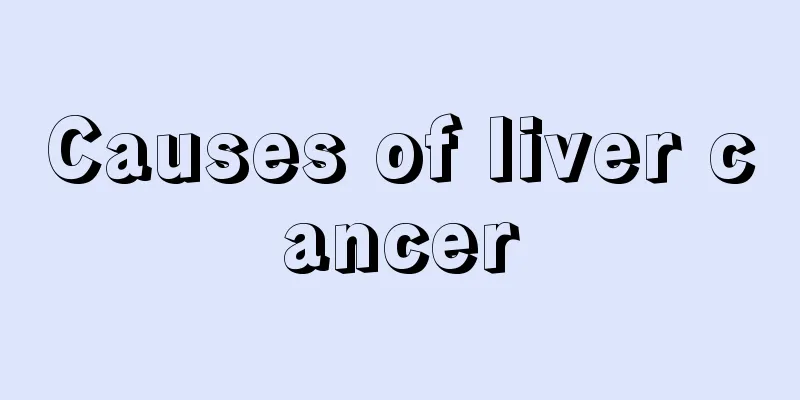Causes of liver cancer

|
It is generally believed that it is a malignant tumor caused by the long-term effects of various harmful factors in the liver's external environment (mainly chemical carcinogens) and certain carcinogens in the body, which causes excessive proliferation of liver cells (or bile duct cells, etc.), resulting in the destruction of normal structures. According to the analysis of a large amount of research data at home and abroad, the main causes of its occurrence are as follows: (1) Viral hepatitis: mainly hepatitis B and C virus infection, especially hepatitis B and hepatitis B virus carriers. (2) Aflatoxin (AFT): Aflatoxin is the most important carcinogen. Long-term consumption of foods containing this toxin can induce liver cancer. (3) Water pollution: Severe pollution of drinking water is one of the important causes of liver cancer. (4) Chemical carcinogens: Chemical substances that can cause liver cancer are mainly nitroso compounds, such as nitrosamines and nitrosamides. In addition, pesticides, alcohol, safrole, etc. can also induce liver cancer. (5) Other factors: Overnutrition (macronutrient intake) or nutritional deficiency (such as vitamin A and vitamin B deficiency), hemochromatosis, parasitic infection and heredity are also risk factors for liver cancer. (6) Immune status: Some people believe that the plasma of liver cancer patients contains a blocking factor that can inhibit cellular immunity and protect liver cancer cells from being killed by immune cells. It has been proven that alpha-fetoprotein (AFP) can inhibit the phagocytosis of lymphocytes and macrophages. (7) Gene mutation: In recent years, some people believe that mutagens and viruses in the environment stimulate the activation of liver cell division response pathways, causing point mutations and gene translocations in cells, which are possible factors of cell proliferation. In addition, the occurrence of liver cancer is also related to the abnormal regulation of cell cycle by non-hemoglobin nuclear proteins, as well as intracellular and extracellular factors such as hormones, peptides, growth factors and polyamines. Many studies have shown that hepatitis and liver cancer are closely related. From an epidemiological point of view, countries or regions with a high incidence of liver cancer are also high-incidence areas of hepatitis. In the same region, people with hepatitis have a much higher risk of developing liver cancer than people without hepatitis. On the contrary, people without hepatitis have a very low risk of developing liver cancer. |
<<: Early clinical manifestations of gastric cancer
>>: Early symptoms of liver cancer
Recommend
Introduction of Lysine Hydrochloride Granules
Lysine hydrochloride is the first amino acid our ...
You can tell where the disease is by looking at the face
Medical experts say that 70% of health problems a...
What should I do if I swallowed jujube?
Usually everyone likes to eat dates. There are se...
How to know if you are suitable for canthus opening?
In today's society, many female friends with ...
How harmful is melanoma
In daily life, many people don't know much ab...
How to quickly reduce swelling after a bruise
Injuries can occur during sports or other unexpec...
The efficacy and function of sea buckthorn oil
As a raw material for health food, sea buckthorn ...
What is the function of quick acne cream
The acne creams we usually buy on the market are ...
What are the causes of prostate cancer?
The causes of prostate cancer are relatively comp...
The symptoms of chronic alcohol poisoning are actually like this
Chronic alcohol poisoning is a condition that occ...
Purpose and usage of edible pure alkali
Alkali is not unfamiliar to us. It is not a commo...
Common knowledge about teratoma prevention
It is difficult to treat teratoma, and now people...
Neurosis won't get better
Neuropathy, a disease in which the nervous system...
What vitamins should I take if I have poor eyesight
Vitamin A is very good for human vision. Regularl...
What are the symptoms of advanced lung cancer? 4 symptoms of advanced lung cancer
Lung cancer is one of the most common malignant t...









